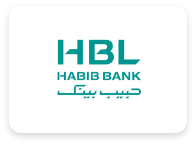Fraud Awareness
Fraud techniques continue to evolve as criminals look for new ways to defraud victims. Pak Exchange Ltd is committed to help and safeguard your transactions. We have implemented procedures to identify fraudulent activities but in this fight against fraud, we also need your help in staying vigilant and ensuring that details of a transaction are not shared with a third party. Below are examples of common fraud techniques used by criminals. If you suspect you may have become a victim of fraud, contact Pak Exchange Ltd using the help line immediately.
Rental Property Scam:
This type of fraud is usually targeted at foreign students. The avenues used are gumtree and other sites used to advertise property. The fraudster will set up an advertisement for a property with the rental amount well below the market rate (too good to be true), pictures are used for other properties found on the internet. Due to the competitive pricing of the property, the fraudster will receive a number of queries. If the victim requests to view the property, the fraudster will claim he is out of the country and will request for a deposit to be sent to ensure that he can reserves the property as demand was high. When the money is sent, the fraudster disappears. The property never existed.
Grandparent Scams:
A fraudster claiming to be a relative in distress or representing the relative such as a lawyer or law enforcement will contact the victim. The relative of the grandparent claims that she is in trouble and needs their grandparent to send them funds that will be used to pay hospital fees, lawyers fees or other fictitious expenses. The victim is advised by the fraudster not to tell anyone, to only inform the grandparent. Calls may be received at night to confuse the victims.
Unexpected Prize & Lottery Scam:
This scam involves a request being received to pay a fee in order to claim a prize or winnings from a competition or lottery that has never been entered in to by the victim. The fraudster will contact the victim via mail, telephone, email, text message or through social media claiming that the victim has won a fantastic prize in a competition or sweepstake that the victim does not remember entering. The prize could be a holiday, electronic equipment such as a laptop or smartphone or an international lottery. A fee is requested by the scammer to release the funds. They will often claim that the fees are for insurance costs, government taxes, bank fees or courier charges. The scammers make money by continually collecting these fees and stalling the payment of winnings. In order to avoid victims from further looking in to this or asking someone about the scam, fraudsters will urge the victim to keep the information confidential and to respond quickly.
Advance Fee Scam:
The victim pays a payment in advance for a promise of goods or services such as a loan or a credit card. After the funds are sent by the victim, the goods or services are never received. The victim is contacted by mail, phones, fax or email.
Mystery Shopper Scam:
Newspaper ads and emails are used to create an impression that the mystery shopping jobs are a gateway to high paying jobs. Often websites are created where a victim can register to become a mystery shopper but a fee has to be paid to obtain information on certification programs, to obtain a list of mystery shopping companies or guarantee of a mystery shopping job. The certification offered is worthless, the list of mystery shopping companies can be found for free online and genuine mystery shopper jobs are listed on the internet. The shopper may also be sent cheques by the fraudster with a request to bank the cheque and to send back an amount. The cheque does not clear and the victim would have sent back a portion of the funds and would be responsible for the bounced cheque.
Employment Scam:
Employment sites are used to recruit victims. The victim believes he has a applied for a genuine job. The fraudster then sends a cheque requesting the applicant to bank this to cover the expenses of the credit check, application fees or recruitment costs. The fraudster will request the victim to use the funds for these expenses which will be required for the job and to send the remaining balance back. The cheque will bounce and the victim will be responsible for the amount of the cheque.
Tax Scam:
The fraudster will contact the victim demanding a tax payment, threatening the victim with an arrest, fines, deportation, ceasing of property etc. The victim will be required to make an urgent payment through a money transfer service provider to avoid the action being by the government agency. This is not how government agencies operate, tax demands are always sent through the post.
Relationship/Romance Scams:
Victims are targeted through online dating apps or social networking sites. Romance scammers create fake profiles on dating sites or contact targets through popular social media sites like Facebook, Instagram etc. The scammers will socially engineer the victims, striking a relationship with their targets to build their trust, this can sometimes go on for months. The scammer will eventually make up a story and ask for money. Common stories are: working in the military, working as a doctor, requesting for payment for surgery or emergencies, paying off debts & paying for travel or a visa. The victim is requested to send a money transfer. If you feel that you may be a victim of such a scam, talk to a friend or relative about the situation and do not send the money.
Tech Support Scams:
Scammers will usually contact the victim either through phone calls or through pop ups on the web browser. When phoning, the scammer will claim he is calling from a well know tech company such as Microsoft and will inform the victim that they have an issue with their pc such as a virus. They often ask for remote assistance and will demand payment via a money transfer service provider for a problem that never existed. The pop up on the system will claim there is a system error or virus issue and request a call to a number where the again the scammer will demand payment for a non-existent issue. Scammers may also try to get their website to show up on online search results for tech support.
Charity Fraud:
The victim is contacted by a fake charity or someone claiming to represent a genuine charity with a request for payment through a money transfer company. Recurrent payments may be requested. Genuine charities do not request for payment to be made via a money transfer service provider. Victim may be contacted by phone, email or post.
Family Emergency Scam:
Fraudsters will pose as relatives or friends, claiming that they have an emergency and require for funds to be sent urgently. Common scenarios used: to pay for hospital treatment or to leave a foreign country. The scammer will gather information on the victim from social networking sites or may hack the email of the victim and obtain information on contacts or hack the email of a relative. They may also involve other crooks that claim to be police officers or lawyers.
Immigration Scams:
A scammer will claim to be a government official when contacting the victim and have access to private information on the individual which he will use to convince the victim that the request is genuine. The scammer will then demand payment for resolving any immigration issues that the victim may declare. The victim me be threatened with legal action or deportation if he does not comply. Immigration officers do not collect money or payments by phone or through money transfer service providers.
Internet Purchases:
The victim purchases an item on the internet but the item is not received after payment is made. The items being sold could be well below their market value & may appear to be genuine with the fraudster using various methods to make the item being sold appear genuine.
Fake/Fraudulent Cheques:
Fraudster will send a cheque for an amount more than what the victim expects to receive for a product or service. The fraudster will request to bank the cheque and send back the excess amount through a money transfer service provider. The cheque will bounce and the victim will be left out of pocket. As described earlier, the victim may also be sent a cheque to cover the expenses for accepting an employment, purchases etc. & will be left out of pocket when the cheque bounces.
Telemarketing:
This refers to the marketing of goods and services by telephone, usually unsolicited to potential customers. This covers a number of different fraud types where consumers are contacted by phone e.g. charity fraud, lottery scam, internet purchases, immigration scam & advance fee scam.
Urgent Update During Covid 19 Outbreak
Scams linked to the virus include fraud through telephone and through phishing emails.
On the phone, criminals contact victims informing them that a relative has fallen sick and requesting payment for medical treatment.
Emails are sent by criminals claiming to be from national or global health authorities, aim is to trick victims to provide personal details or payment details or to open an attachment that contains malware.
Fraudsters are also attempting to impersonate legitimate companies, using similar names, websites and email addresses.
Consumers should not be using Pak Exchange to send money to order medical supplies online, there are many fake sites set up where the supplies are never sent after payment has been made. Genuine medical suppliers will not request payment through money transfer companies.
How to prevent becoming a victim of fraud
- - Don’t send the money if you have not met the person before.
- - Don’t send money for the purchase of good or services.
- - If you have been requested to send money for a family emergency, have you tried phoning the relative?
- - Don’t send money for loans or credit cards.
- - Do not send money for lottery wins or once in a lifetime deals.




